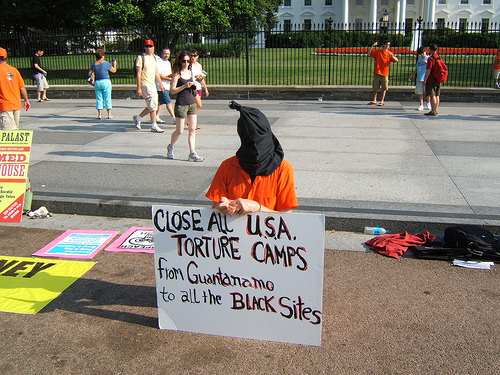Today the ICJ welcomed with enormous satisfaction yesterday’s decision by the United Nations Commission on Human Rights to adopt a new international instrument to prevent torture.
The Draft Optional Protocol to the Convention against Torture has been a subject of protracted negotiations at the UN in Geneva for the past 10 years. The ICJ, which has taken an active role throughout this process, believes that the new instrument will be a powerful and effective tool in reducing incidents of torture world wide.
In January, the Chairperson of the Working Group negotiating the text, Elisabeth Odio-Benito, who is also a Vice President of Costa Rica, placed before Government delegates a text regarded by most states and non-governmental organisations as the best achievable compromise. Yesterday the Commission voted by 29-10, with 14 abstentions, in favour of the Costa Rica -sponsored initiative to transmit the text to the UN Economic and Social Council (ECOSOC) for eventual adoption by the General Assembly. The Protocol will come into force upon achieving ratification by 20 states.
The Optional Protocol aims to prevent torture by providing for a dual system of visits to places of detention by international and national experts. These visiting mechanisms will have an opportunity to examine places of detention and to assist states in devising means to minimise the risk of torture.
The Optional Protocol has faced stiff opposition from several states which tend to oppose strong international monitoring mechanisms, including China, Cuba, Libya Saudi Arabia, and the United States. In attempting to block its adoption, Cuba unsuccessfully put forth a motion of “no action” yesterday which would have prevented the Commission from voting on the substance of the text.
In the end, the text was adopted by a sizeable margin. Voting in favour were Argentina, Armenia, Austria, Bahrain, Belgium, Brazil, Burundi, Canada, Chile, Costa Rica, Croatia, Czech Republic, Democratic Republic of the Congo, Ecuador, France, Germany, Guatemala, Italy, Mexico, Peru, Poland, Portugal, Senegal, South Africa, Spain, Sweden, United Kingdom, Uruguay and Venezuela. Voting against were China, Cuba, Japan, Libya, Malaysia, Nigeria, Republic of Korea, Saudi Arabia, Sudan, and Syria. Abstaining were Algeria, Cameroon, India, Indonesia, Kenya, Pakistan, Russian Federation, Sierra Leone, Swaziland, Thailand, Togo, Uganda, Vietnam and Zambia.
The ICJ will continue to work for the adoption of the Draft Optional Protocol by ECOSOC and the General Assembly later this year.




